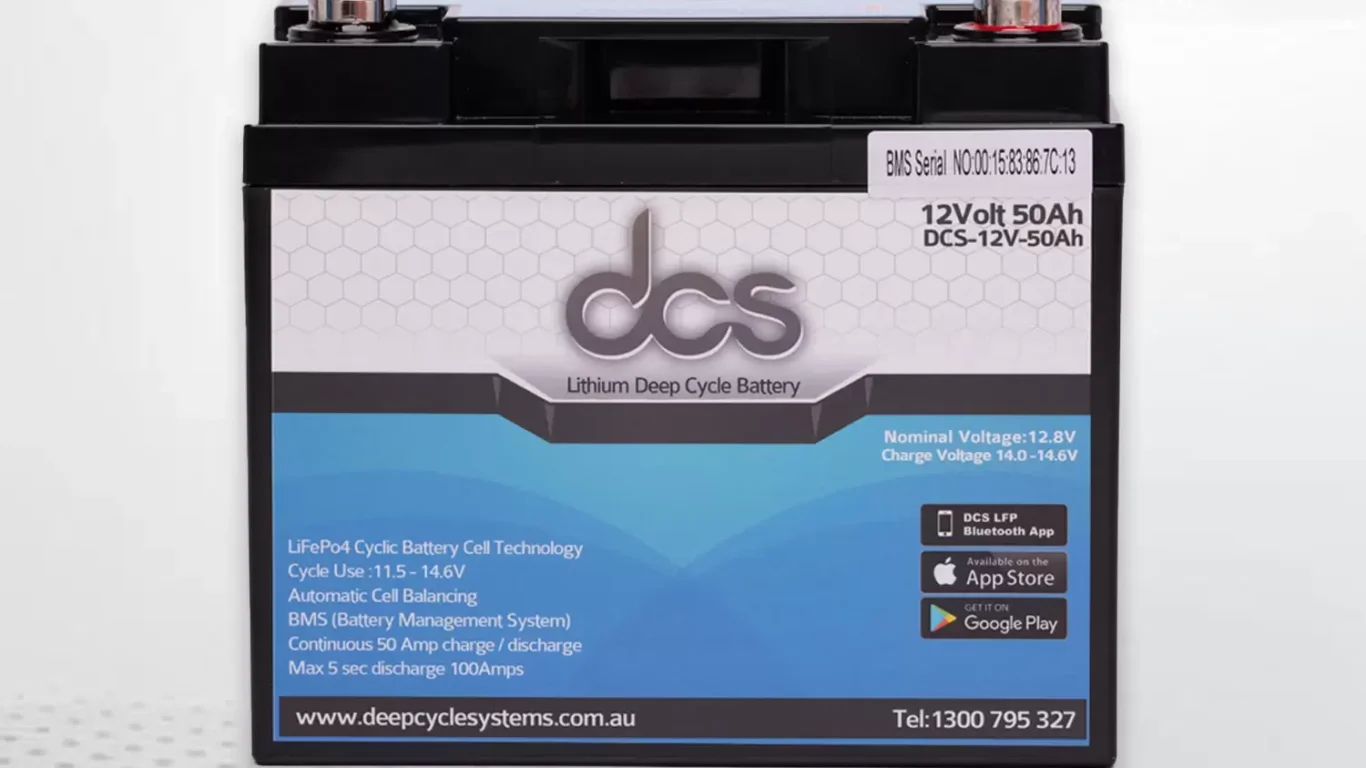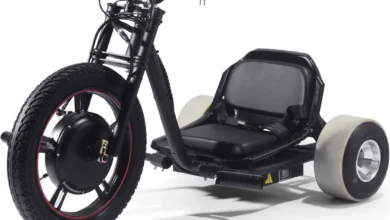Keeping It Energised – The Li Ion 12v 100ah Battery

Lithium-ion batteries have become the go-to choice for many consumers when it comes to powering our everyday devices and equipment. One popular option in the market is the Li-ion 12-v 100-ah battery. In this blog post, we will delve into the intricacies of this powerful and versatile battery, exploring its technology, specifications, advantages, potential applications, maintenance tips, longevity, and more. So, let’s dive in and uncover the secrets behind the li ion 12v 100ah battery.
The Basics of Li-Ion Technology
Lithium-ion (Li-ion) technology represents a leap forward in battery engineering, distinguished by its ability to store significant energy in a small space. These batteries harness the movement of lithium ions between the cathode and anode during charge and discharge cycles. This process is highly efficient and minimises loss of charge over time. Noteworthy for their reduced weight compared to traditional lead-acid batteries, Li-ion variants, including the 12-v 100-ah type, offer a compelling combination of energy density and portability.
This technology has ushered in an era where batteries are not only a source of power but also a component that enhances the usability and performance of the devices they power. The inherent characteristics of Li-ion batteries, such as their resistance to the ‘memory effect’ and a lower self-discharge rate when not in use, contribute to their widespread adoption across many applications, from consumer electronics to large-scale energy storage systems.
Understanding the 12-V 100-Ah Specification
The 12-volt 100-ah specification of a lithium battery highlights two critical aspects of its performance capabilities: the voltage at which it operates and its total storage capacity. A voltage of 12 volts indicates the electric potential difference the battery can provide, which is suitable for a wide array of devices and applications requiring this power input.
The 100 ampere-hours (ah) capacity signifies the battery’s ability to supply a current of 100 amperes for one hour under ideal conditions. Alternatively, this could be viewed as the battery’s capability to deliver a lower current over a more extended period, such as 10 amperes for 10 hours. This specification is pivotal in matching the battery to the power requirements of various equipment, ensuring that the device or system it powers operates efficiently and effectively.
It also serves as a fundamental criterion for calculating the battery’s energy storage capacity, which is instrumental in planning usage durations and charge cycles. Understanding these specifications is vital to leveraging the battery’s full potential in everyday and specialised applications.
The Advantages Of Using A Battery Lithium Ion 12v 100ah
Adopting a lithium-ion 12-volt 100-ampere hour battery brings forth many benefits that surpass conventional battery technologies on several fronts. Its high energy density primarily stands out, allowing for a compact size while delivering substantial power, thus facilitating portability and ease of installation in various settings. This characteristic is particularly beneficial for applications where space and weight are critical factors, such as mobile devices, electric vehicles, and portable power stations.
Moreover, the battery lithium ion 12v 100ah boasts rapid charging capabilities, significantly reducing downtime and enhancing convenience for users who require quick replenishment. This feature, coupled with its ability to sustain a higher number of charge and discharge cycles, translates into a longer service life, thereby offering more excellent value over time when compared to alternatives that may require more frequent replacements.
Another noteworthy advantage is its lower self-discharge rate, which ensures the battery retains its charge for extended periods when unused, making it an ideal choice for seasonal or emergency applications. Its robust performance under various temperatures contributes to its reliability and versatility across different environments and use cases.
Potential Applications For the 12-V 100-Ah Li-Ion Battery
The li-ion 12-v 100-ah battery’s exceptional characteristics lend it to various applications across different fields. In electric vehicles (EVs), this battery type is crucial for providing the necessary power for extended range and efficiency, making EVs a more viable option for everyday use and long-distance travel.
Similarly, in the context of renewable energy systems, such as solar panel setups, the 12-v 100-ah li-ion battery is indispensable for energy storage, ensuring that surplus energy generated during peak sunlight hours can be stored during low sunlight or at night. This battery also finds extensive use in portable power solutions, including camping gear, emergency power supplies, and mobile charging stations, where its lightweight nature and high energy density are particularly advantageous.
Its reliability and capacity to handle numerous charge cycles make it an ideal candidate for backup power solutions in homes and businesses, safeguarding against power outages and ensuring continuity of operations. Furthermore, the versatility of the Li-ion 12-v 100-ah battery is evident in its applicability to a wide range of industrial equipment, providing a dependable power source for tools and machinery in sectors where performance and endurance are paramount.
Maintenance and Safety Tips for Li-Ion Batteries
Proper maintenance and adherence to safety guidelines are paramount when handling li-ion batteries, such as the 12-v 100-ah variant. These practices not only ensure the longevity of the battery but also safeguard against potential hazards.
Avoid exposing the battery to extreme temperatures
Excessive heat can lead to battery degradation at an accelerated rate, while extreme cold conditions can diminish its performance. Store and operate the battery within the temperature ranges specified by the manufacturer to maintain optimal conditions.
Regularly inspect the battery
Physical inspections can help identify cracks, leaks, or bulging, which could signify internal damage. If any of these signs are present, stop using the battery immediately and consult a professional for advice.
Utilise a proper charging technique
Always use the charger provided by the manufacturer or another charger explicitly certified for your specific lithium-ion battery model. Incorrect charging practices can lead to overheating, overcharging, and reduced battery life.
Keep the battery clean and dry
Ensure the battery terminals and the surrounding area are free from dirt and moisture. A clean connection prevents power inefficiencies and potential short circuits. If cleaning is necessary, use a dry cloth to gently wipe the battery’s exterior, avoiding water or conductive materials.
Longevity and Durability Of the 12-V 100-Ah Li-Ion Battery
Its usage patterns and care regimen significantly influence the lifespan of the Li-ion 12-v 100-ah battery. This type of battery is engineered for resilience, boasting the capacity to endure numerous charge-discharge cycles with minimal degradation when maintained within recommended parameters. Effective management, such as avoiding complete discharge and not exposing the battery to extreme temperature variations, is pivotal in preserving its structural integrity and functional capacity.
Adhering to prescribed charging practices and employing a dedicated battery management system can further enhance its durability. This ensures the battery remains efficient for extended periods, affirming its value as a long-term investment in various applications. Proper attention to these aspects maximises the battery’s operational life, keeping it robust and reliable across countless uses.
Going the Distance: Maximising Li-Ion Battery Life
Observing certain practices can be significantly beneficial to extend the operational life of your Li-ion 12-v 100-ah battery. Maintaining the battery within a charge state that favours longevity, specifically keeping the charge level between 20% and 80%, can prevent the stress that either deep discharges or total charges impose on the battery’s internal chemistry.
Exposure to extreme hot and cold temperatures should be avoided as these conditions can accelerate the degradation of the battery cells, ultimately impacting their ability to hold a charge. Furthermore, practices that reduce the rate at which the battery is discharged can also contribute to its prolonged life. High discharge rates can induce undue stress on the battery, so it is preferable to use the battery in a manner that ensures gradual discharge.
Regular battery cycling and periodic maintenance checks are encouraged to identify potential issues early and ensure the battery remains in peak condition. Incorporating these habits into your battery usage and maintenance routine can help preserve the structural integrity and efficiency of your Li-ion 12-v 100-ah battery, allowing it to serve your energy needs reliably over an extended period.
Charge It Up: Maintaining the 12 Volt 100ah Lithium Battery
Ensuring the longevity and efficacy of your 12 volt 100ah lithium battery hinges on adopting correct charging practices. It is imperative to utilise a charger that precisely aligns with the battery’s specifications to safeguard against potential damage. Inferior quality or incompatible chargers can introduce risks, including battery impairment and heightened safety hazards.
Adherence to the manufacturer’s charging recommendations—regarding both the duration and intensity of charging cycles—plays a critical role in mitigating risks of overcharging and overheating, which are detrimental to the battery’s health. During charging, monitoring the battery’s environment is crucial. Position the battery in a well-ventilated space, free from flammable materials, to facilitate heat dissipation and reduce fire risk.
Protecting the battery from moisture and water exposure during charging is essential to prevent short circuits or damage. It’s beneficial to periodically check the battery’s condition, looking for signs of damage or wear that could impact its charging capability. If discrepancies are noted, consulting a professional or referring to the manufacturer’s guidelines is advisable to address any issues promptly.
Conclusion
In wrapping up, the Li-ion 12-v 100-ah battery stands out as a powerhouse of efficiency and reliability. Its wide-ranging applications and the substantial benefits it offers underscore its importance in today’s increasingly electronic world. By understanding and adhering to the appropriate maintenance and safety protocols, users can fully harness the potential of this battery, ensuring it meets and surpasses their energy needs. As we move towards a more sustainable future, the role of such advanced battery technology will only grow, highlighting the significance of informed usage and care.
FAQs
Q: Can I power my electric vehicle with a Li ion 12v 100ah battery?
A: Indeed, electric vehicles can be efficiently powered using the Li ion 12v 100ah battery, known for its high energy density and longevity, making it an excellent choice for enhanced performance.
Q: What is the recommended storage method for my 12-volt 100-ah lithium battery when it is not utilised?
A: It’s best to store your battery in a cool and dry location, avoiding exposure to direct sunlight and extreme temperature fluctuations. This approach helps preserve the battery’s efficiency and extend its usable life.
Q: Could you provide safety advice for charging my Li-ion 12-v 100-ah battery?
A: To ensure safety while charging your battery, always utilise a charger that matches the battery’s specifications to prevent potential damage. It’s crucial to refrain from overcharging or completely depleting the battery. Regularly inspect the battery for any signs of distress, such as damage or swelling, especially during charging, to mitigate risks promptly.
Q: Are there any particular considerations for the disposal of lithium batteries?
A: Due to their chemical composition, lithium-ion batteries should not be disposed of with regular household waste. It is advisable to take them to a dedicated recycling centre or return them to a collection point specialising in handling electronic waste, ensuring environmentally responsible disposal.
| Related Business Listings |
| Contact Directory |
| Local Business Profiles |



